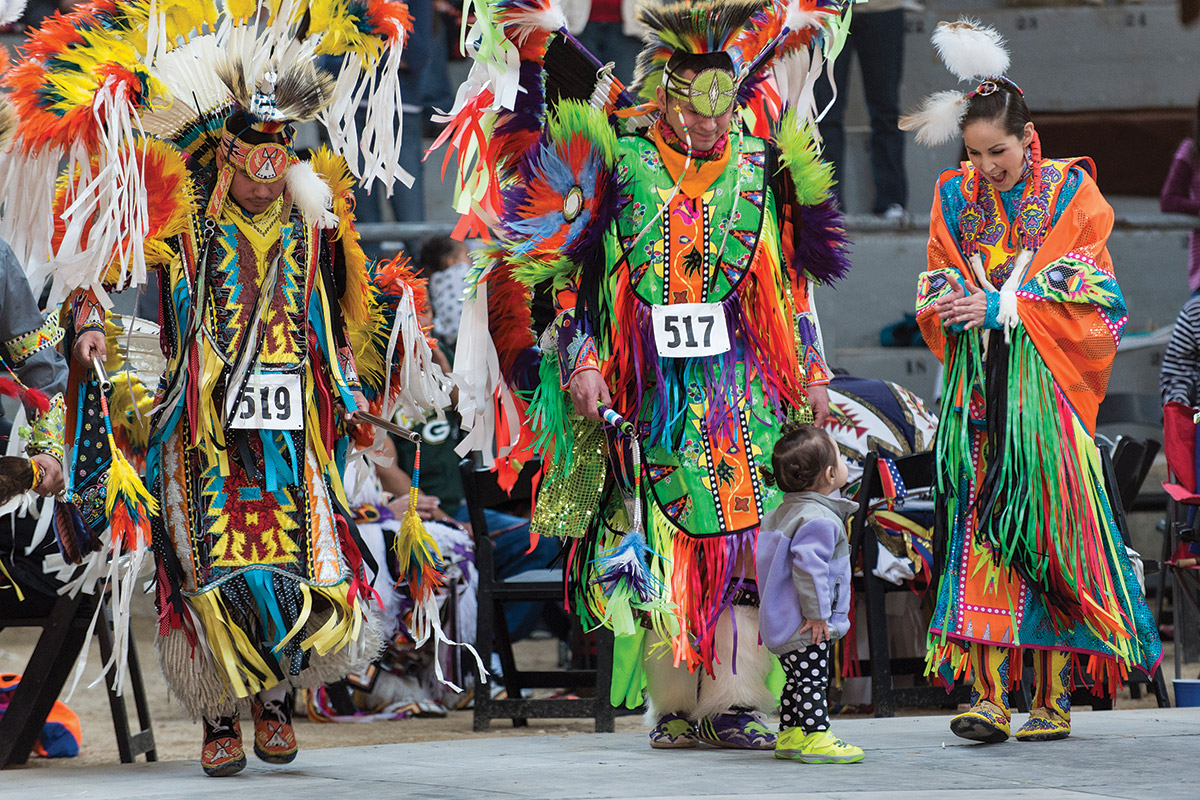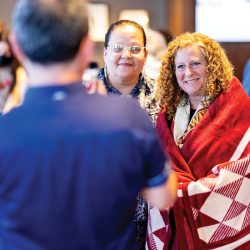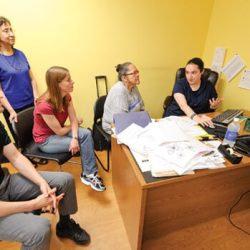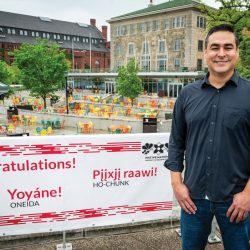Annual Spring Powwow
Too often, we’re tempted to experience much of our world through the lens of a cell phone camera. But each April, the On Wisconsin Annual Spring Powwow creates a swirl of feathers, beads, and colors that moves too quickly to capture on screen.
At last year’s event in the Field House, spectators rose as participants took to the floor for the Grand Entry, and a Ho-Chunk elder offered blessings in the tribe’s traditional language. A drum circle played the “Veterans Honor Song,” and veterans entered carrying tribal banners, POW-MIA flags, and the American flag. The procession continued until all participants — organizers, pageant royalty, and jubilant community members — were dancing in a circle.
For nearly four decades, the scene has looked effortless. But members of the planning committee, UW-Madison’s Wunk Sheek student organization, know it’s just the opposite.
Wunk Sheek was founded in 1968 with a simple goal. “We’re trying to bridge the gap between the UW campus community and the eleven tribal nations living in Wisconsin,” says Samantha Pecore x’16, the group’s vice president. The small population of Natives on campus sparks a need to educate the majority on American Indian culture. Wunk Sheek does so in part by organizing Native November, featuring numerous campus events to celebrate American Indian Heritage Month, and holding the spring powwow.
The powwows are free and open to the general public as well as members of the Native and campus communities. They provide opportunities for all to actively participate during inter-tribal songs in which everyone is encouraged to dance. Last year’s event drew more than 2,800 attendees, and many of the dancers, singers, and drummers were from the Ho-Chunk tribe, which historically occupied the Madison region.
“We always honor Ho-Chunk because we’re on their land,” explained Pecore at last spring’s wrap-up meeting. They also honored Oneida, a tribe whose ten-thousand-resident reservation is near Green Bay.
“We try to switch it up between the various tribes. We’re just trying to be inclusive,” she said. Looking around the room at her fellow Wunk Sheek members, she smiled, adding, “All of us are from different tribes.”
Published in the Spring 2016 issue




Comments
No comments posted yet.